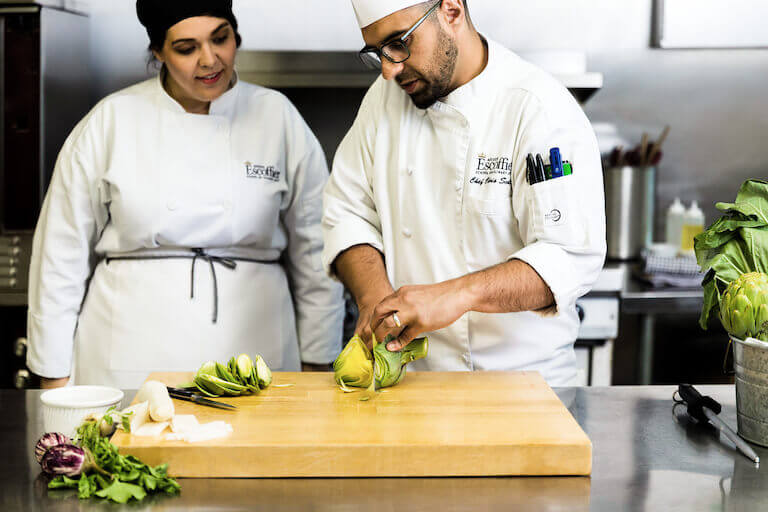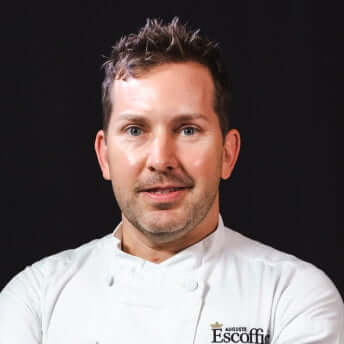Listen to This Article:
Do you love trying new restaurants, or telling your friends about that amazing meal you had last week? Are you always looking to grow your knowledge of food and expose yourself to new cuisines and experiences? Do you ever wish there was a way you could make a living doing this?
If you find yourself saying yes, you may be cut out for the life of a food critic. While this can be a selective career path that requires hard work and commitment, it could also be an ideal way to combine your passion with your livelihood.
While the term “food critic” may be familiar, the path to becoming one may be a little more obscure. Let’s dig into the nature of the role and the steps involved in becoming a food critic.
What Is a Food Critic?
A food critic is a writer who specializes in providing thoughtful commentary on their experiences dining out. Also known as restaurant critics, these writers visit restaurants, sample the food, and report on their experience—not just on the food itself, but on everything, from the ambiance to the service.

This work is generally done anonymously, so that the critic doesn’t get special treatment that could skew their experience and lead to a biased report.
A good food critic would also keep up to date with broader local and global food trends, restaurant openings and closures in their area, notable chefs, and other relevant contexts that could help make their writing more meaningful to their audience.
Food critics are essentially a conduit between diners and restaurants, and their work affects both parties—they help diners stay informed by providing unbiased reviews and up-to-date information about food trends, and they help restaurants by offering them exposure and keeping them accountable in the eyes of the public.
4 Steps to Becoming a Food Critic
While there’s no defined career path to becoming a food critic, these steps could form the basis of your plan.
1. Seek Formal Training to Stand Out from the Crowd
Though it’s not necessary to have any kind of formal training to become a food critic, it can be a great way to build up your skills quickly, make connections, and establish credibility both with your audience and with future employers.
You might consider getting a degree in journalism or a related field, or joining a writing workshop in order to improve your skills as a writer.
Similarly, you may consider attending culinary school as a way to get experience relevant to your future work. If you’re wondering why you’d choose this educational route when you don’t want to be a chef, keep in mind that many culinary school graduates don’t aim to work in kitchens at all. Culinary school can offer a unique environment that may allow you to gain exposure to different types of cuisine, acquire the language to describe ingredients, flavors, and techniques, get hands-on experience, connect with mentors in the food industry, and start building a network—all valuable experiences and resources that can help give you a leg up in your journey to becoming a food critic.

Hands-on training and mentorship can be an asset to a food critic.
2. Create Your Own Content to Build Skills and Credibility
One of the best things you can do to get closer to making your dream a reality is to start producing content on your own. This can help you practice your skills with a real-world audience, which is an invaluable experience, and start to build a portfolio you can show to potential future employers.
Consider creating a blog to start publishing your food writing—this is probably the fastest way to get your writing in front of an audience, and while it likely won’t generate any income for you at first, it’s a great way to practice, get feedback, and build exposure. You may even be able to monetize your platform and start making an income as a food influencer, which could be a sustainable career in itself.

Also, consider submitting pieces to existing blogs or publications—similarly, you’ll likely get paid little or nothing to do this, but it’s a great way to make connections and get your name out there as a food writer.
3. Get Your Foot in the Door as a Professional Writer
Once you’ve spent some time developing your skills, start shopping around for jobs. Keep in mind that because this is a relatively niche profession, you may have to think strategically about the path you take toward becoming a food critic. Consider broadening your search beyond food writing. Comb job listings for newspapers, magazines, and online outlets, and try applying for any writing jobs that appeal to you.
While a food writing job at a certain publication might not be available now, one may open up in the future. By demonstrating an interest and landing an entry-level job at that publication, your employer may reassign you. But even if this doesn’t pan out, having professional writing experience can make your resume that much more impressive when you’re applying for that perfect food critic opportunity at some point down the road. By showcasing your writing experience alongside your successful food blog and your culinary school degree or diploma, you have the chance to demonstrate that you’re a skilled writer who’s serious about food.

Professional writing experience of any kind can help you get closer to becoming a food critic.
4. Remain Committed to Growing Your Network and Cultivating Your Skills
As with any career, it’s important to always nurture and expand your network. Building relationships with chefs, hospitality professionals, and other journalists is a great way to stay current, learn about events and opportunities, and can even lead to new job prospects. This is another area where attending culinary school may help you get ahead, as it can give you the opportunity to connect with an extended, global network of students, chef instructors, and alumni working in a wide variety of food industry roles.
In addition to maintaining an ongoing commitment to your network, you should also make a similar commitment to growing your skills and knowledge. Take continuing education courses, solicit feedback, listen to food podcasts, and attend conferences and seminars that interest you. Adopting a growth mindset may not only improve the quality of your writing, but can help make your career as a food critic all the more rewarding.
Do You Have the Makings of a Food Critic?
Here are a few attributes that could be important for any aspiring food critic to have. Does this sound like you?
A Love of Food
As a food critic, you should have a broad palate, a knowledge of different cuisines and techniques, and a passion for dining out—in short, you should have a deep love of food! Not only can this lend necessary depth and texture to your writing, but if this is going to be your profession, it’s important that you enjoy it.

While not required, having some familiarity with the food industry already can also be an asset. This could be experience working in kitchens or in the broader hospitality industry. With such a background, you’ll have insight into the business, technical, and emotional aspects of running a restaurant, all of which will enhance the quality of your work.
Great Communication Skills
Since being a food critic is all about communication, it’s vital that you have excellent communication skills—specifically when it comes to writing. Beyond being able to articulate your ideas clearly, good storytelling will likely be valuable to you in this career. Food and dining are all about experiences, so your ability to put your reader right there with you can help your writing stand out.
This isn’t to say that you need to have formal training in writing or journalism, but it could be an advantage. Formal training not only helps you improve your craft, but having a degree or diploma from an accredited program could help differentiate you from other writers once you start seeking jobs in this field.

Integrity and Curiosity
Remember that you’re doing this for the love of food, and that the position comes with a very real degree of responsibility. As a food critic, you may end up having a platform that reaches a wide audience, which means that your words could have the potential to impact public perception of the restaurants you report on. As such, it’s important that you are able to remain impartial and open-minded, and always approach your work with integrity.
Also remember that you’re not a food critic for yourself, but in service of your audience. So it’s crucial for you to be able to push yourself beyond your comfort zone, try new things, and be open to new experiences. Being a restaurant critic may lead you places you wouldn’t have anticipated, so setting meaningful goals and having a curious nature can both serve to improve the quality of your work and make your experience in the profession more personally rewarding.
“The longer that you’ve been on this spinning ball we call earth, the more wisdom and experience you have, which you can translate into pretty much anything.”*
Chef Steve Konopelski, Escoffier Pastry Arts Chef Instructor
Take the Next Step with a Culinary Degree or Diploma
Ready for the opportunity to be exposed to different types of cuisine, gain conceptual and hands-on experience, and build a network within the culinary community? If you’re eager to become a food critic, culinary school could be your next step. With a culinary education, you may be immersed in an environment that can help equip you with the skills and resources you could need to be successful as a food critic.
A degree or diploma in Culinary Arts or Food Entrepreneurship from Auguste Escoffier School of Culinary Arts could be the difference-maker as you look to take the next exciting step in your career.
Financial aid, grants, and scholarships are available to those who apply and qualify, which help bring this opportunity—and your career as a food critic—closer to becoming a reality.
Ready to explore more exciting opportunities in the food industry? Try these articles next!
- The Essential Guide to Careers in the Food Industry
- Why Earn an Associate Degree in Culinary Arts?
- 5 Alternative Careers out of Culinary School
*Information may not reflect every student’s experience. Results and outcomes may be based on several factors, such as geographical region or previous experience.

 “The longer that you’ve been on this spinning ball we call earth, the more wisdom and experience you have, which you can translate into pretty much anything.”*
“The longer that you’ve been on this spinning ball we call earth, the more wisdom and experience you have, which you can translate into pretty much anything.”*

